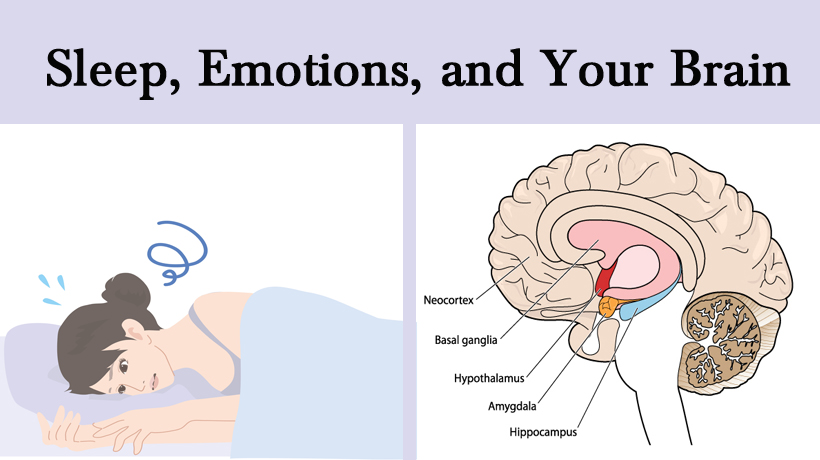Poor sleep can take a huge toll on our emotional well-being! Sleep deprivation can cause issues neurologically that compromise one’s emotional health. What are the effects of sleep deprivation? How does it affect our emotional health?
Emotionally reactive
Sleep deprivation can make a person emotionally reactive. It could be the reason why you may get irritated more quickly than usual. Michael J. Breus, Ph.D., is a clinical psychologist who studies sleep, and in his article for Psychology Today, he discusses how we can feel a whole variety of emotions both positive and negative that are difficult to manage due to sleep deprivation.
There is research that states sleep deprivation stimulates overactivity within the amygdala, which is our emotional rapid response in the brain. We’ll be much more impulsive, and our emotions would be heightened. Not only that but the connection between two parts of the brain, the prefrontal cortex and the amygdala, is hindered. The prefrontal cortex is what helps manage the amygdala, so we aren’t making rash decisions and constantly acting on emotions.
Negative thoughts
Sleep deprivation can lead to a development of depression and anxiety. According to Dr. Breus, people who lack sleep have repetitive negative thoughts and tend to ruminate over them, in comparison to those who do get sleep. Repetitive negative thoughts are invasive and tough to control. It can disrupt a person’s daily functioning where you can lose control over your emotions and thoughts.
Fear response
Psychology Today explains how sleep deprivation exacerbates our fear responses, which leads us to worry more. Recent research shows sleep deprivation can make us worry especially if you are someone who already worries often.
Psychology Today cites research conducted by scientists at the University of California, Berkeley that dealt with sleep deprivation and how it increases worry about the future called “anticipatory anxiety.” In this research, 18 young adult participants observed images that were emotionally disturbing and emotionally neutral. In order to stimulate anticipatory anxiety, scientists told the participants a signal ahead of time letting them know they were going to watch disturbing images. The scientists measured brain responses among participants who were had sleep and another who were well rested and when sleep deprived. The researchers found out that the signal was much higher when the participants were sleep deprived in comparison to when they were well rested.
Sleeping plays a large role in worrying, especially if you are already prone to worrying, getting regular sleep is important.



